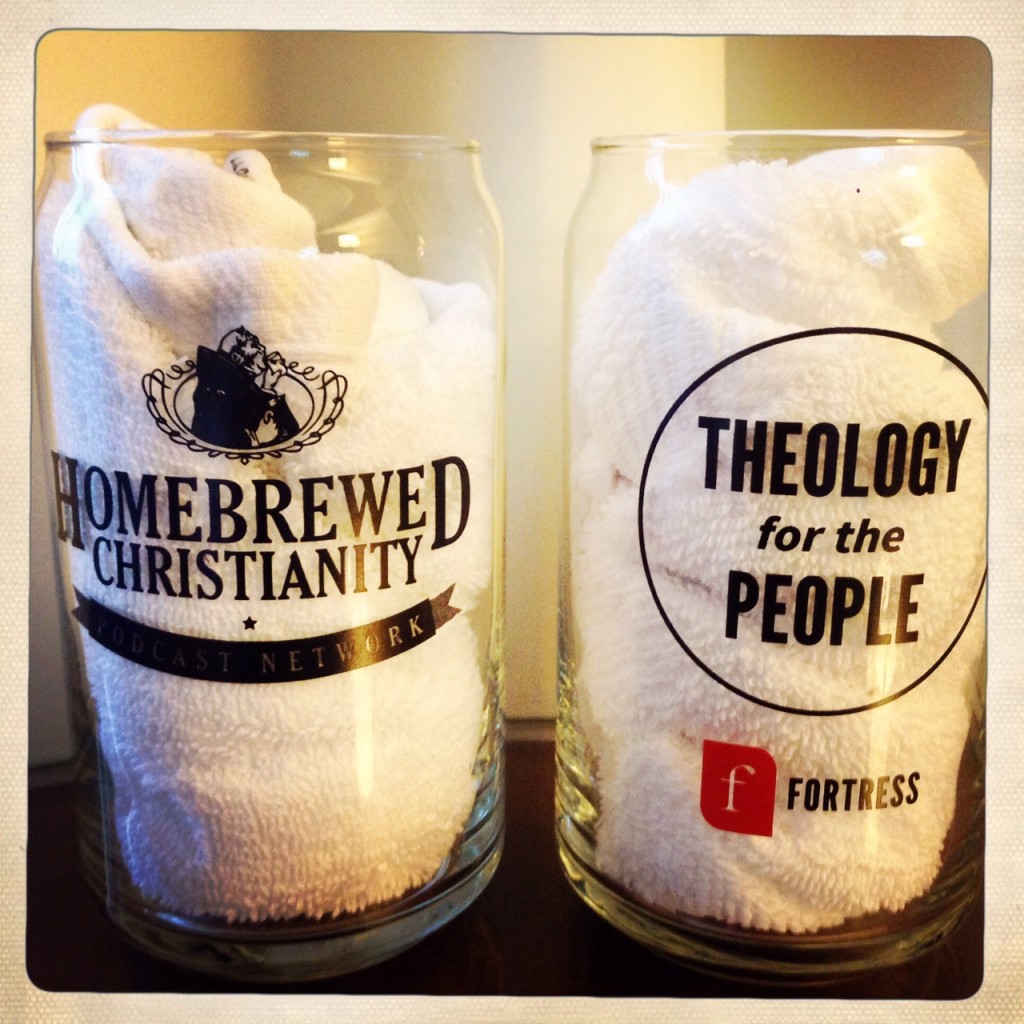This post is part of a blog tour for Daniel Kirk‘s new book, Jesus Have I Loved, but Paul?: A Narrative Approach to the Problem of Pauline Christianity. See all the posts at the blog tour hub.
OK, I’m going to be a little tough on my friend, Daniel Kirk, in this post. Daniel is, admittedly, to my hermeneutical right. He’s a New Testament prof at my alma mater, Fuller Seminary, and I have a great deal of respect for him. But the chapter in his new book on homosexuality, while more generous than many evangelicals, falls short. It does so because it recapitulates the familiar meme, Love the Sinner, Hate the Sin.
Mason Slater has already done a fine job of summarizing the chapter as a whole, so I won’t repeat that here. The bottom line for Kirk, as Slater sees it, is this:
But the real thesis of the chapter, the theme that (rightly I think) trumps everything else, is love.
Central to our calling as Christians is love of others, and it is here that much of the church has failed spectacularly in its approach towards the GLBT community.
Jesus sums up the entire law with “Love the Lord your God with all your … and, love your neighbor as yourself” and then when asked who this neighbor might be, Jesus tells a parable which turns all the audience’s expectations upside-down and shows a hated outsider as more faithfully following the way of Jesus than the religious insiders.
There is, in Kirk’s book, the now-familiar self-flagellation that thoughtful evangelicals do when recounting how horribly they’ve treated gays over the past few decades. And that’s right, they have treated gays horribly, and they should repent. We all should.
However, it’s this paragraph in Kirk’s chapter that I think shows how he fails to embrace a truly narrative hermeneutic, and one that would free him to really love the gays who are in the church:
Indeed, if there is anything genuinely new about our situation in the twenty-first century when it comes to the question of homosexuality, it is not that our culture has more of a place for it than the prejudiced ancients, and it is nopt even that recent science suggests that we are predisposed to certain sexual preferences. The real difference is that there are Christians who are both striving to faithfully follow God and simultaneously living within committed homosexual relationships. This is part of the current-day experience of the church, and one that must be carefully weighed when we consider whether homosexuality is, as Scripture seems to indicate, a deviation from what is acceptable before God or whether it is, as its advocates would claim, a new work of the Spirit in a surprising extension of the mission of God.
It’s that last sentence, in bold, that I think presents a false dichotomy. Homosexual practice is either a deviation or a new work of the Spirit. Caught in this dichotomy, Kirk chooses the former. But it’s a false choice.
Admittedly, Kirk gets here only after quickly dismissing the many scholarly arguments for alternate understandings of the Greek words in Romans 1 and 1 Corinthians 6 that are often translated “homosexual” and “effeminate.” (I found his dismissal of these arguments unconvincing.
Further, Kirk interprets Jesus’ silence on this issue as consent to the Jewish thinking of the day. That is, if Jesus had objected to Hebrew teaching on sexuality, he would have taught against it — as he did, for instance, regarding the Sabbath.
Here’s why the above dichotomy is false: it’s reliant upon an understanding of the Bible that allows no room for science, psychology, evolutionary biology, social movement theory, etc. As Kirk even admits in the paragraph I quoted above, the science isn’t the thing. The presence of faithful gays is the thing.
But I disagree. The reason that many of us know faithful, Christian gays isn’t that they’re suddenly here. They’ve always been here. But they’ve been closeted, often because of the church. Western society has become more tolerant — and more gays are out — not because of the moral decline of our culture, but because we’re more faithfully living the biblical — dare I say, Pauline! — mandate that we see all persons as equally children of God.
Kirk strives mightily in the chapter to state that the overwhelming narrative of scripture is one of love, love, love. He repeatedly reminds his fellow conservatives that heterosexual sex is often just as “disordered” — just as sinful — as homosexual sex. Nevertheless, by failing to allow extrabiblical to resources to amend his hermeneutic, those two passages hang like a millstone around his interpretation. For the gays I know, calling their sexuality “disordered” isn’t love.











